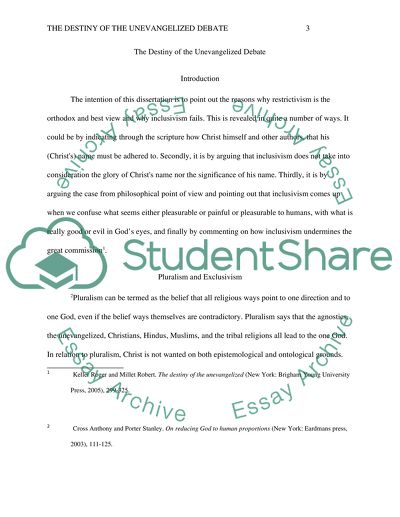Cite this document
(“The Destiny of the Unevangelized Debate: Research Paper”, n.d.)
The Destiny of the Unevangelized Debate: Research Paper. Retrieved from https://studentshare.org/religion-and-theology/1592909-the-destiny-of-the-unevangelized-debate
The Destiny of the Unevangelized Debate: Research Paper. Retrieved from https://studentshare.org/religion-and-theology/1592909-the-destiny-of-the-unevangelized-debate
(The Destiny of the Unevangelized Debate: Research Paper)
The Destiny of the Unevangelized Debate: Research Paper. https://studentshare.org/religion-and-theology/1592909-the-destiny-of-the-unevangelized-debate.
The Destiny of the Unevangelized Debate: Research Paper. https://studentshare.org/religion-and-theology/1592909-the-destiny-of-the-unevangelized-debate.
“The Destiny of the Unevangelized Debate: Research Paper”, n.d. https://studentshare.org/religion-and-theology/1592909-the-destiny-of-the-unevangelized-debate.


